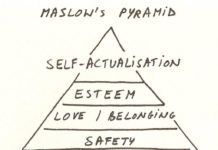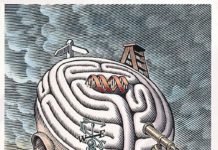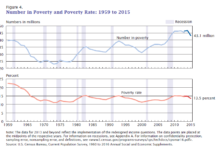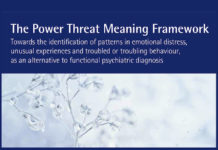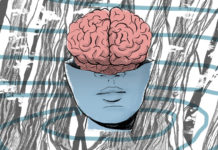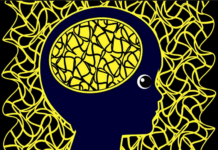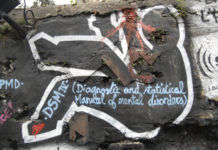Reimagining Healthcare
The conventional Western classification systems of health conditions are based on flawed science shaped by reductionist, hierarchical, and profit-driven ideologies. THEN wants to create a new paradigm built upon principles drawn from systems science, the life course perspective, developmental neurobiology, and other evidence-informed studies.
Are Students Benefiting From the Growth Mindset Model?
Results from two meta-analyses reveal shortcomings with the growth mindset theory as applied in schools.
Psychologist Debunks Common Misconceptions of Maslow’s Hierarchy
Utilizing Maslow’s published books and essays, psychologist William Compton delineates common myths and attempts to respond to them.
The Conflicts That Result From Globalizing Euro-American Psychology in India
Researchers examine the transformation of work, life, and identity in India as a result of Western corporate and psychological culture.
Study Finds Heavy Metal Music Beneficial to Mental Health
A new study highlights the role heavy metal music plays in the mental health of adolescents facing adversity.
Western ‘Depression’ is Not Universal
Derek Summerfield, consultant psychiatrist at South London and Maudsley National Health Service Foundation Trust, challenges the assumption that Western depression is a universal condition.
Recovery: Compromise or Liberation?
The 90s were labeled - rather optimistically - as the ‘decade of recovery.’ More recently, recovery has been placed slap bang central in mental health policy. Is supporting recovery pretty much good common sense? Or is the term being misused to pressure those suffering to behave in certain ways?
The Paradox of White Americans’ Mental Health
Are White Americans’ poor mental health outcomes caused by Whiteness?
United Nations Report Calls for Revolution in Mental Health Care
In a new report, the United Nations Special Rapporteur on the right to health, Dr. Dainius Pūras, calls for a move away from the biomedical model and “excessive use of psychotropic medicines.”
Mental Health Concerns Not “Brain Disorders,” Say Researchers
The latest issue of the journal Behavioral and Brain Sciences features several prominent researchers arguing that mental health concerns are not “brain disorders.”
Integrating Indigenous Healing Practices and Psychotherapy for Global Mental Health
As the Global Mental Health Movement attempts to address cross-cultural mental health disparities, a new article encourages integrating traditional healing practices with psychotherapy.
Psychotherapy is Less Effective and Less Accessible for Those in Poverty
A special issue explores the connection between poverty, mental health, and psychotherapy.
Psychology Needs New Concepts and Healing Models for Racial Trauma
Contemporary empirical research explores new ways to conceptualize and heal racial trauma through anticolonial and sociohistorical lenses.
How Western Psychiatry Harms Alternative Understandings of Mental Health
An anthropological look at the Global Mental Health (GMH) movement suggests several ethical problems and contradictions in its mission.
The Power Threat Meaning Framework One Year On
The team that developed the Power Threat Meaning framework as a diagnostic alternative reflects on the response to the framework after one year.
Large Rigorous Study Debunks Popular Gene-Environment Theory of Depression
A large and rigorous meta-analysis fails to find support for the gene-environment interaction theory of depression.
Correcting Misconceptions of Trauma-informed Care with Survivor Perspectives
Trauma-informed approaches have the potential to promote recovery but must involve survivors and service-users to prevent the experience of retraumatization within psychiatric and mental health services.
Psychologists Argue for Decolonial Approach to Global Poverty
Individualist psychological models of poverty pathologize poor communities, decolonial approaches that emphasize context and interdependence may be more sustainable.
Psychotherapy Less Effective for People in Poverty and Those on Antidepressants
A new study finds poorer depression and anxiety outcomes in psychotherapy for people in economically deprived neighborhoods and those on antidepressants.
How to Change Psychology to Address Racial Health Disparities
Psychology can only deal with racial health disparities effectively by incorporating critical race theory and intervening at a structural level.
Researchers Suggest Traumatic Experiences May Cause Psychotic Symptoms
A new study in JAMA Psychiatry investigates the relationship between trauma and psychotic experiences.
Mental Health Professionals and Patients Often Disagree on Causes of Symptoms
A new study finds that clinicians’ disregard for mental health patients’ insight into their own condition may be detrimental to treatment.
Decontextualized Depression and PTSD Diagnoses Fail Indigenous Communities
A case analysis of an American Indian woman illustrates how the DSM diagnostic criteria misrepresent the lives of indigenous people.
Bringing Structural Competency to Global Mental Health
Structural competency is put forth as a framework that addresses social and structural determinants in global mental health.
The Role of Racial Bias in the Overdiagnosis of Schizophrenia
Researchers detect disparity between white and African American patients diagnosed with schizophrenia when symptoms of a mood disorder are present.



